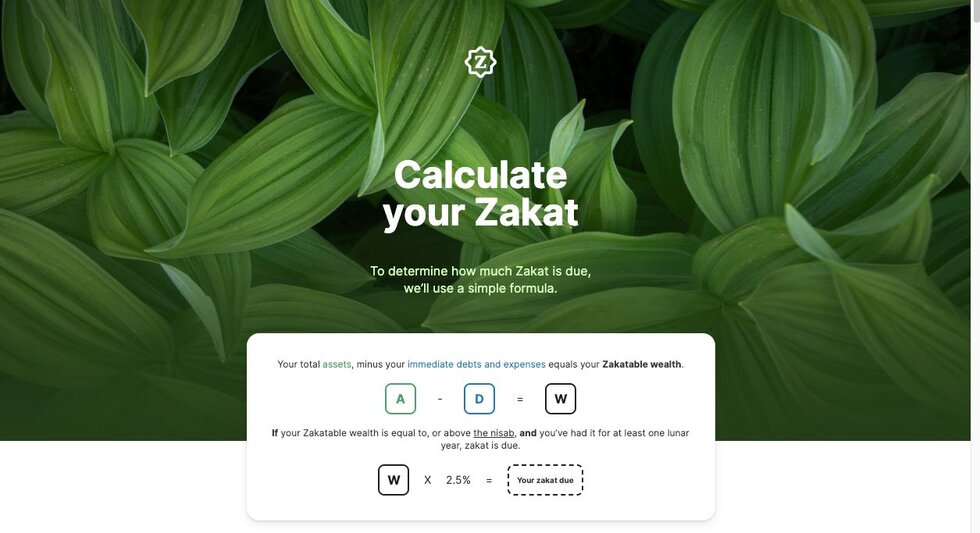Home
>
When is Zakat due?
November 17, 2024
Zakat in Islam: Meaning, obligations, and history
By Yusuf Jaffar
•
3 min read

Zakat is a cornerstone of the Islamic faith, serving as both a spiritual obligation and a means of uplifting communities. At LaunchGood, we aim to make it easy for Muslims to understand and fulfill their Zakat obligations with tools like our Zakat Calculator.
The meaning of Zakat
Zakat is an Arabic term that means "purification." It represents a mandatory act of charity that purifies one's wealth, soul, and other blessings. There are different types of Zakat:
Zakat Al Nafs: Purifying your soul.
Zakat Al Ilm: Purifying your knowledge.
Zakat Al Fitr: Purifying your fast.
Typically, "Zakat" refers to Zakat Al Mal, the purification of wealth. Muslims calculate 2.5% of their savings held for over a year and distribute it among the eight eligible categories outlined in Surah At-Tawbah, verse 60:
"Zakat is for the poor and for the needy and for those employed to collect (Zakat). And for those whose hearts will be brought together (for Islam) and for slaves and for those in debt and for (those) on the Way of Allah and for the travelers - an obligation by Allah. And Allah is All-Knowing, All-Wise."
Zakat Al Mal v Zakat Al Fitr
Let’s begin with the terminology itself. We already learned that the Arabic word Zakat (زكاة) means growth and purification. Al fitr comes from the word إفطار or “breaking the fast” because it marks the breaking of the long fast at the end of the month of Ramadan. It is also considered a moment of celebration since it is offered on the morning of Eid day. “Al mal” in zakat al mal means whatever is acquired for its benefit and has a monetary value. However, for the purpose of this article we will limit the meaning of it to the zakatable items. The most popular and common zakat asset people are familiar with is wealth. Wealth is normally acquired in the form of money. As for gold, silver, goods and stocks, they are equivalent to money or “al mal” and have their own Zakat rules as well.
Find Zakat eligible campaigns below.
What is the significance of Zakat?

Zakat as a Compulsory Charity, Not a Gift or Tax
The distribution of Zakat from the wealthy to the needy connects our economic well-being to a spiritual one. The term Zakat means "to purify or cleanse" and is emphasized in numerous verses of the Qur'an. Like Salah (prayer), Zakat is a pillar of Islam, established and institutionalized by Prophet Muhammad ﷺ.
Zakat purifies one’s wealth and reminds us that all provisions belong to Allah and must be shared with the needy. The Qur’an states:
"In their wealth and properties is the right of the poor, the beggar and he who is in deprivation" (51:19).
It also highlights the qualities of believers in relation to Zakat:
"When they are in authority, they establish regular prayer and give Zakat, enjoin what is right and forbid what is wrong" (22:41).
"They are vigilant in paying Zakat" (23:4).
"They establish prayer and give Zakat and loan Allah a goodly loan" (73:20).
The Prophet ﷺ said, "Whoever pays the Zakat on his wealth will have its evil removed from him" (At-Tabarani).
Zakat Controls Your Ego
Zakat has roots in previous religious traditions and reminds believers of life’s reality: worldly possessions lose significance after death.
It liberates believers from greed and corruption, fostering harmony, contentment, and gratitude. By acknowledging that wealth is both a blessing and a trust, Zakat teaches restraint, integrity, and justice. It reinforces the belief that helping others is not charity but a duty, fostering dignity and peace for all.
Zakat Levels the Field
With 2 billion Muslims globally, Zakat is a significant means of wealth redistribution, with an estimated annual potential of $200 billion to $1 trillion.
Properly managed, Zakat can drive economic development, particularly in Muslim-majority and minority communities. Linking Zakat to global initiatives, like the UN Sustainable Development Goals (SDGs), highlights its transformative potential.
Prophet Muhammad ﷺ institutionalized Zakat to ensure it played a central role in the Islamic community. Today, it remains a socio-religious and economic catalyst for fairness, urging believers to act as stewards of Allah on Earth (2:30) and create a just and compassionate world.

Zakat in Islam
Zakat is mentioned extensively in the Quran as a means of purifying wealth and souls. Allah commands believers to give Zakat, highlighting its importance alongside Salah (prayer):
"Take from their wealth a charity to cleanse and purify them" (9:103).
It purifies wealth from impermissible gains and protects the soul from greed and excessive attachment to material possessions:
"And you love wealth with an excessive love" (89:20).
Zakat is a sign of faith, ensuring wealth is shared with those in need, as emphasized in:
"In their wealth and properties is the right of the poor, the beggar, and he who is in deprivation" (51:19).
The Quran also associates Zakat with success:
"And whoever is saved from the greed of his soul, then such people are the successful" (59:9).
Through Zakat, believers strengthen their spiritual connection with Allah while uplifting their communities. It is both a divine command and a moral responsibility.
Featured fundraisers
Discover 1.5K more
Join our newsletter
Join our community of 700k subscribers
Explore more